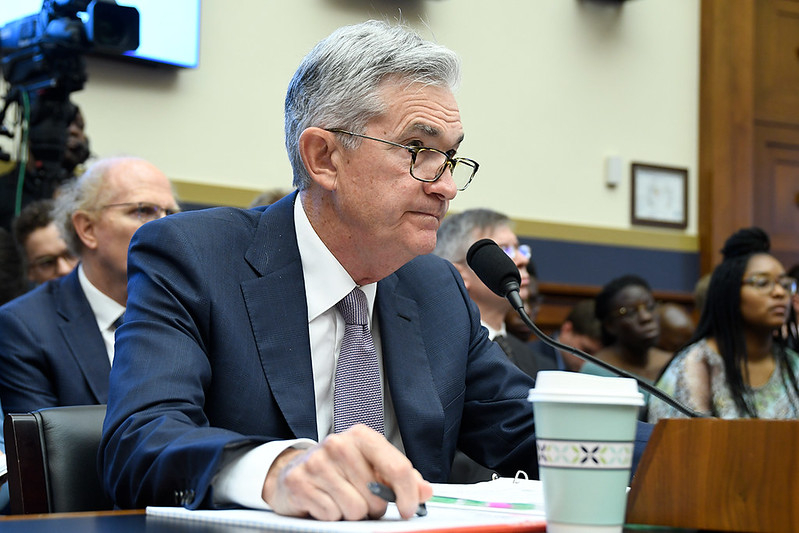
Chair Powell presents the Monetary Policy Report to the Committee on Financial Services. July 10, 2019. Photo courtesy of the Federal Reserve.
The Federal Reserve is working to rein in inflation, but its efforts are being frustrated by companies also looking to achieve their own goals by prioritizing the price they charge for their products over the volumes they sell. Bloomberg reports:
Companies from automakers to hoteliers keep on sacrificing sales volume – sometimes by design, sometimes by necessity – in favor of higher prices, a dynamic that will test the Federal Reserve’s efforts to rein in inflation.
The latest set of earnings showed that businesses aren’t likely to walk away from a strategy Corbu LLC’s Samuel Rines calls “price over volume” adopted by certain industries at the height of the pandemic, when supplies and labor were both hard to come by.
Ford Motor Co. said this month it is aiming to maintain robust sticker prices, even if that means rolling fewer cars off its assembly lines. Lodging giant Marriott International Inc. has focused on increasing room rates, especially for corporate accounts. Southwest Airlines Co. is among US carriers that are pulling in record revenue as tight flying capacity is helping to keep fares higher.
With peak tourism season around the corner, this reliance on pricing power isn’t going anywhere. And it may be apparent in Wednesday’s consumer price index report, which economists surveyed by Bloomberg estimate will show the annual inflation rate was unchanged at 5% in April after falling for nine straight months.
“It is going to prove much more sticky, prevalent and problematic for the Fed over the summer than people anticipate,” said Rines, an economist and managing director at Corbu.
Auto prices are not far off record highs and the average monthly payment for a new car in March was $754 amid rising interest rates, according to Cox Automotive. That’s almost one sixth of the median post-tax income for US households. The price crunch will likely get more acute as carmakers push to convert their fleets to more expensive electric models.
The pricing tactics reflect lessons of earlier phases of the pandemic: When Ford and its rivals struggled with a chip shortage, they saw running with a thinner backlog of cars had profit upside.
Read more here.
